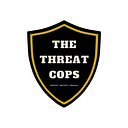Elevate your Expertise: Key CyberSec Certifications 2K24
In the vast realm of information security, cybersecurity certifications act as more than just qualifications — they’re tangible proof of expertise and competence in safeguarding critical data and systems against ever-evolving cyber threats. These professional credentials stand as concrete validations of one’s knowledge and skills within specific domains of information security. More than a mere demonstration of proficiency, certifications serve as trusted assurances for employers, assuring them that certified professionals can fortify their digital fortresses against sophisticated cyberattacks. In this blog, we’ll unravel the intrinsic value of these certifications and spotlight key certifications for newcomers & security professionals, offering a roadmap to advance their careers with confidence.
Why is it necessary?
There are various reasons why certifications in this field are important.
- Validation of Expertise: Certifications offer concrete proof of cybersecurity skills, assuring employers of an individual’s adeptness in mitigating cyber threats effectively.
- Industry Recognition: Universally acknowledged, certifications showcase a commitment to evolving technologies, strengthening credibility among peers and employers in cybersecurity.
- Specialization and Depth: Certifications enable expertise in focused cybersecurity domains, fostering in-depth knowledge and hands-on experience.
- Adaptation to Changing Landscapes: Ongoing education through certifications ensures professionals stay current with evolving cybersecurity trends and threats.
- Trust and Assurance: Certified professionals instill confidence in businesses, signifying a commitment to security practices and safeguarding sensitive data and systems.
- Global Recognition: Certifications provide a globally understood validation of skills, enabling the pursuit of cybersecurity careers worldwide.
- Continuous Professional Development: Embracing a culture of ongoing learning, certifications contribute to continuous skill enhancement and industry best practices.
Certifications for Newbies
- CompTIA Security+:
• Organization: CompTIA
• Focus: Entry-level cybersecurity skills validation. - CyberSecurity Fundamentals Certificate:
• Organization: ISACA
• Focus: Fundamental cybersecurity principles understanding. - Cisco Certified CyberOps Associate:
• Organization: Cisco
• Focus: Basics of cybersecurity operations and monitoring. - Introduction to Cyber Security Specialization:
• Organization: NYU (Coursera)
• Focus: Basics of cybersecurity, including cryptography and network security. - Microsoft Learn — Security, Compliance, and Identity Fundamentals:
• Organization: Microsoft
• Focus: Introduction to security principles, identity, and access management. - Systems Security Certified Practitioner (SSCP):
• Organization: (ISC)²
• Focus: Intermediate cybersecurity skills validation.
Certifications for Security Analysts
- Certified Information Systems Security Professional (CISSP) Associate:
• Organization: (ISC)²
• Focus: Entry-level version of the CISSP, covering security basics. - Certified Information Security Manager (CISM):
• Organization: ISACA
• Focus: Cybersecurity management track validation. - CompTIA Advanced Security Practitioner (CASP+):
• Organization: CompTIA
• Focus: Validation of advanced cybersecurity skills. - GIAC Certified Incident Handler (GCIH):
• Organization: GIAC
• Focus: Incident handling, response, and defense techniques. - Certified Cloud Security Professional (CCSP):
• Organization: (ISC)²
• Focus: Cloud security principles and best practices. - Certified Ethical Hacker (CEH) — Associate:
• Organization: EC-Council
• Focus: Ethical hacking expertise validation. - AWS Certified Security — Speciality:
• Organisation: Amazon Web Services (AWS)
• Focus: Security best practices for AWS environments. - Offensive Security Certified Professional (OSCP):
• Organization: Offensive Security
• Focus: Penetration testing skills validation. - GIAC Security Essentials Certification (GSEC):
• Organization: GIAC
• Focus: Essential security skills and practical capabilities. - Certified Information Systems Auditor (CISA):
• Organization: ISACA
• Focus: Auditing processes and expertise validation.
Here are a few educational platforms that can help you get valuable resources for free:
- CodeRed by EC-Council
- LetsDefend
- Security Blue Team
Kickstart your career
Starting a career in cybersecurity requires a solid foundation in computing fundamentals. Familiarity with protocols, operating systems, programming, and web technology, forms the cornerstone. These essential skills can be acquired through readily available free online resources.
Next, move to entry-level certifications to comprehend the basics within the domain. A solid understanding of the basics will help you delve deeper into the field. Then specialize in a specific domain within cybersecurity to gain proficiency. Honing expertise through practical projects further fortifies your skills.
To maintain a strong foothold in the field, it’s crucial to foster a continuous learning mindset, consistently updating your knowledge base with the latest trends, emerging threats, and evolving countermeasures in the dynamic realm of cybersecurity.
Conclusion
For those entering the cybersecurity field, bug bounty programs serve as an incredible opportunity. They allow ethical hackers and security enthusiasts to put their skills to the test, uncover vulnerabilities, and play a crucial role in fortifying digital defenses. Stay tuned for our upcoming blog, where we delve into the world of bug bounty programs and ethical hacking!
Follow us here on Medium for more insights into our pursuit of cybersecurity excellence.
Keep learning!
For comprehensive cybersecurity solutions and to elevate your digital standards, meet TheThreatCops — a cybersecurity company that offers vulnerability assessment, penetration testing, security auditing, and more at an affordable monetary frame. We specialize in a wide array of cybersecurity services that cater to your specific requirements. If you are interested in learning more about how The Threat Cops can help you to improve your cybersecurity posture, contact us today, (support@thethreatcops.com). Safeguard your digital realm with confidence!
